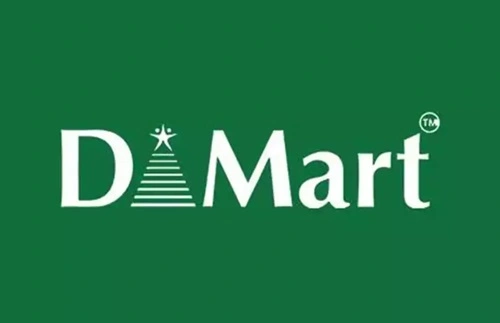DMart, operated by Avenue Supermarts Limited, is one of India’s most successful retail chains. Known for its affordable pricing, wide range of products, and customer-centric approach, DMart has become a household name across the country. It operates as a one-stop destination for groceries, household essentials, apparel, and more. For entrepreneurs interested in entering the retail sector, owning a DMart franchise may seem like a lucrative opportunity.
However, DMart operates differently compared to traditional franchise models. This article provides a detailed guide on DMart’s business model, investment requirements, potential profitability, and the feasibility of franchising.
DMart’s Business Model in India

DMart operates on a corporate-owned and corporate-operated (COCO) model, which means all its stores are owned and managed directly by Avenue Supermarts Limited. This centralized control ensures consistency in pricing, quality, and operations across all outlets. As a result, DMart does not offer franchise opportunities to individuals or third parties.
Instead, the company focuses on acquiring its properties or entering into long-term lease agreements for its stores. This strategy helps DMart maintain low operational costs and pass on the savings to customers through competitive pricing.
Cost of Setting Up a DMart-Like Retail Store
While owning a DMart franchise is not possible, understanding the investment required to establish a similar retail store can offer insights for aspiring entrepreneurs in the retail industry.
Initial Investment
- Real Estate Costs: DMart typically operates large-format stores (20,000–50,000 sq. ft.) in high-footfall areas. Acquiring or leasing such commercial properties can cost:
- ₹2 crores to ₹10 crores for outright purchase, depending on the location.
- ₹2 lakhs to ₹10 lakhs per month for leasing prime spaces in urban or semi-urban areas.
- Store Setup Costs: Establishing a retail outlet involves expenses for interiors, shelving, refrigeration units, billing systems, and technology. This typically ranges between ₹50 lakhs to ₹1.5 crores.
- Inventory Costs: Stocking a large retail store with groceries, apparel, electronics, and household items requires an initial inventory investment of ₹2 crores to ₹5 crores.
Recurring Costs
- Operational Costs: Monthly expenses, including salaries, utilities, and maintenance, can range from ₹5 lakhs to ₹10 lakhs, depending on the store size.
- Marketing Budget: While DMart relies on its low prices to attract customers, local advertising may require a monthly budget of ₹50,000 to ₹1 lakh.
- Logistics: Efficient supply chain management is crucial for minimizing costs and ensuring product availability.
Profitability of a DMart-Like Retail Store
Retail stores like DMart can be highly profitable if managed efficiently. Here’s an estimate of the potential profitability:
- Revenue: A well-located large-format retail store can generate monthly revenues ranging from ₹1 crore to ₹5 crores, depending on the customer base and product range.
- Profit Margins: While retail stores typically operate on low margins (5-15%), high volumes ensure substantial overall profits.
- Breakeven Period: Most retail stores achieve breakeven within 2-4 years, provided they are strategically located and operationally efficient.
Challenges of Operating a DMart-Like Retail Store
- High Initial Investment: Setting up a large-format retail store requires substantial upfront capital.
- Operational Complexity: Managing inventory, staff, and supply chain operations can be challenging, especially for new entrants.
- Market Competition: The retail sector in India is highly competitive, with players like Reliance Retail, Big Bazaar, and local kirana stores vying for market share.
- Location Dependency: The success of a retail store heavily relies on securing a prime location in a densely populated area.
How to Partner with DMart
While DMart does not offer franchises, there are alternative ways to collaborate with the company:
- Real Estate Leasing: Property owners with large commercial spaces in strategic locations can lease their properties to DMart for store expansion.
- Vendor Partnerships: Businesses involved in manufacturing or distributing FMCG products can explore supply agreements with DMart to feature their products in its stores.
- Logistics Support: Companies specializing in supply chain and logistics services can partner with DMart to streamline its operations.
Opportunities in India’s Retail Sector
India’s retail sector is poised for exponential growth, driven by rising disposable incomes, urbanization, and changing consumer preferences. Aspiring entrepreneurs can capitalize on this opportunity by exploring other retail franchise options or starting their own multi-brand retail outlets.
- Franchise Alternatives: Consider franchising with brands like Reliance Smart, Easyday, or Spar that operate in the grocery and retail segment.
- Private Label Retailing: Launch a private label store offering competitively priced products under your own brand name.
- E-Commerce Integration: Combine a physical store with an online platform to cater to both offline and online customers.
Key Takeaways
- DMart Does Not Franchise: All DMart stores are company-owned and company-operated to maintain strict control over pricing and operations.
- Explore Alternatives: Entrepreneurs can consider other retail franchises or invest in their own retail stores to tap into the growing market.
- Focus on Efficiency: Success in retail depends on minimizing operational costs, managing inventory effectively, and securing high-footfall locations.
Conclusion
While owning a DMart franchise is not an option, the brand’s success offers valuable insights into the retail industry. Entrepreneurs can learn from DMart’s cost-efficient model, customer-centric approach, and focus on prime locations to build a successful retail business.
By exploring alternative franchise opportunities or starting a private retail venture, you can leverage India’s thriving retail market and establish a profitable business. With the right strategy, operational efficiency, and customer focus, you can emulate the success of DMart in your own retail journey.
Anantha Nageswaran is the chief editor and writer at TheBusinessBlaze.com. He specialises in business, finance, insurance, loan investment topics. With a strong background in business-finance and a passion for demystifying complex concepts, Anantha brings a unique perspective to his writing.


